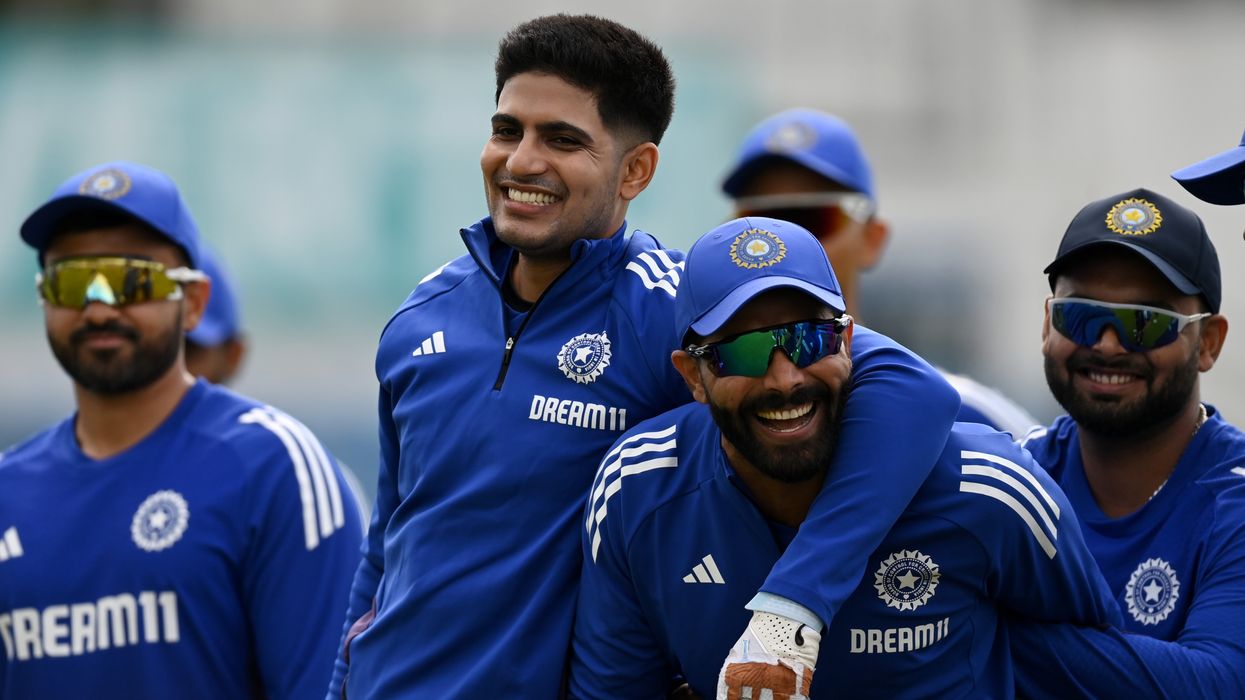INDIA will begin their Test series in England on Friday with a new captain and without two of their most experienced batters — Virat Kohli and Rohit Sharma. Shubman Gill, who takes over from Rohit, will also bat at number four, filling the position vacated by Kohli.
Vice-captain Rishabh Pant confirmed on Wednesday that Gill would bat at four in the first Test at Headingley. “I think Shubman is going to bat at number four and I'm going to stick to number five as of now,” Pant said. “Obviously, it's a new start for us, big people have left. Yes, there will be a gap, but at the same time, it's an opportunity for us to build a new culture from here.”
Kohli announced his retirement from Test cricket days after Rohit stepped down, ending a phase in which the pair led India’s batting for over a decade. Kohli and Sachin Tendulkar together scored over 21,000 runs from the number four position in 278 Tests.
Gill, 25, has a Test average of 35 in 32 matches, which drops to 29 in away games and below 15 in three previous Tests in England. The Headingley match marks the start of a new World Test Championship cycle. India last won a series in England in 2007, with their only other wins coming in 1971 and 1986.
Leadership transition and new combinations
Pant, who has returned to cricket after a serious car accident in 2022, said his close friendship with Gill would help them in leadership roles. “If you're good friends off the field, it eventually comes on the field. Me and him, we get along really well together,” he said.
India will also miss the services of experienced bowlers. Jasprit Bumrah, returning from a back injury, may be rested for two of the five Tests due to the schedule. Mohammed Shami is unavailable due to ankle surgery, and Ravichandran Ashwin has retired from Tests.
The selectors have named several fresh faces. Karun Nair could return to the XI, and Sai Sudharsan may get his debut. All-rounders Nitish Reddy and Shardul Thakur are being considered to strengthen the middle order, while there is also a chance Kuldeep Yadav could be included.
There are decisions to be made in the pace department. Arshdeep Singh, Akash Deep and Prasidh Krishna are in contention to support Bumrah and Mohammed Siraj. Head coach Gautam Gambhir will face his first tactical test in a long series, with several selections yet to be finalised.
England without Anderson and Broad
England, who lost 4-1 in India last year, will be without James Anderson and Stuart Broad, their two most successful Test bowlers with 1,308 wickets combined. Their attack for the first Test will include Chris Woakes, Brydon Carse, Josh Tongue and Shoaib Bashir, with Woakes set to bat at number eight.
Durham’s Carse, who will make his home debut at Headingley, said the changes offer opportunities. “I think it's a good chance for a couple of younger players, with slightly less experience, to stamp down some authority throughout the series.”
Ben Stokes’ side will be without Jofra Archer and Mark Wood due to injury. Broad told The Times: “Looking at England, with all the injuries they've got – where are they getting 20 wickets?”
Pant said India wouldn’t take the new-look England attack lightly. “It feels so good when both of them are not there. But at the same time, they have enough ammunition in the England bowling line-up.”
The series could hinge on key battles, including the one between Bumrah and Joe Root, who has scored over 13,000 Test runs. England will also rely on batters like Zak Crawley, Ben Duckett, Harry Brook and Ollie Pope.
Squads
England (playing XI): Zak Crawley, Ben Duckett, Ollie Pope, Joe Root, Harry Brook, Ben Stokes (c), Jamie Smith (wk), Chris Woakes, Brydon Carse, Josh Tongue, Shoaib Bashir.
India: Shubman Gill (c), Rishabh Pant (vc & wk), Yashasvi Jaiswal, KL Rahul, Sai Sudharsan, Abhimanyu Easwaran, Karun Nair, Nitish Reddy, Ravindra Jadeja, Dhruv Jurel (wk), Washington Sundar, Shardul Thakur, Jasprit Bumrah, Mohammed Siraj, Prasidh Krishna, Akash Deep, Arshdeep Singh, Kuldeep Yadav, Harshit Rana.
(With inputs from agencies)




